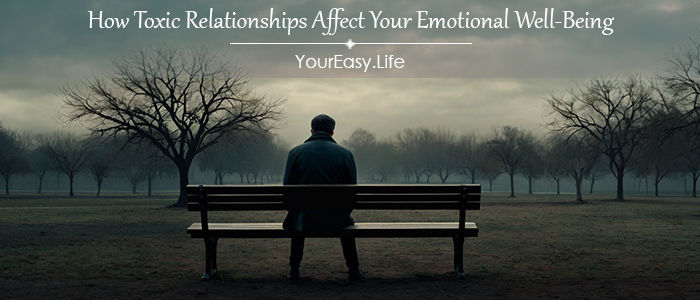Emotional intelligence is a powerful tool that can significantly improve your life and career for the better. Have you ever wondered why some people easily connect with others, achieve success in their work and personal lives, while others constantly face difficulties and misunderstandings? Perhaps the difference lies in their level of emotional intelligence. Let’s dive into what emotional intelligence is and how it can help you enhance the quality of your life.
Table Of Contents
- What Is Emotional Intelligence?
- Why Do We Need Emotional Intelligence?
- What Happens When Emotional Intelligence Is Well Developed Or Poorly Developed?
- How To Check Emotional Intelligence In A Person?
- Can EI Be Completely Absent?
- How To Develop Emotional Intelligence?
- Are There Any Methods To Develop Emotional Intelligence?
- “I’m Afraid That Becoming More Empathetic Will Make Me Too Sensitive to Others’ Problems.”
- Are There Any Studies On Emotional Intelligence?
What Is Emotional Intelligence?
Emotional intelligence (EI) is the ability to recognize, understand, and manage your own emotions, as well as the emotions of others. Unlike regular intelligence (IQ), which measures our cognitive abilities, emotional intelligence focuses on our emotional skills. EI consists of several components:
- Self-awareness: Understanding your own emotions.
- Self-regulation: The ability to control and manage your emotions.
- Motivation: Internal drives that guide our behavior and actions.
- Empathy: The ability to understand and feel what others are feeling.
- Social skills: The ability to interact with others and build strong relationships.
Why Do We Need Emotional Intelligence?
Emotional intelligence is an essential skill that helps us better understand ourselves and those around us, both in our personal lives and at work. Imagine a scenario: you’re working in a team on an important project, and one of your colleagues starts to feel anxious and behaves aggressively. If you have a high level of EI, you’ll be able to calmly respond to their emotions, understand the reason behind their behavior, and help them cope with the situation. As a result, the team will work more efficiently, and relationships between colleagues will strengthen.
What Happens When Emotional Intelligence Is Well Developed Or Poorly Developed?
Well-Developed EI:
- Improved Relationships: you understand your partners, friends, and colleagues better, which helps avoid conflicts and build strong relationships.
- Increased Productivity: the ability to manage your emotions and the emotions of others helps solve tasks more effectively and achieve goals.
- Self-Confidence: understanding and controlling your emotions boosts your self-confidence and self-efficacy.
Poorly Developed EI:
- Frequent Conflicts: The inability to understand others’ emotions can lead to misunderstandings and conflicts.
- Reduced Efficiency: Difficulties in managing emotions can lead to stress and decreased productivity.
- Low Self-Confidence: Not understanding your emotions can cause feelings of insecurity and anxiety.
How To Check Emotional Intelligence In A Person?
There are various tests and methods to assess the level of emotional intelligence. These tests evaluate your self-awareness, self-regulation, motivation, empathy, and social skills. One of the most well-known tests is the EQ-I (Emotional Quotient Inventory), developed by Daniel Goleman, which assesses different aspects of EI.
Can EI Be Completely Absent?
No, EI cannot be completely absent in a person. However, its level can vary among individuals. Some may have innate abilities for empathy and self-regulation, while others may need to work on developing these skills.
How To Develop Emotional Intelligence?
Developing emotional intelligence is a process that takes time and effort, but the results are worth it. Here are a few steps to help you improve your emotional intelligence:
- Awareness: Start by analyzing your emotions. How do you feel in different situations? What triggers your joy, sadness, anger?
- Emotion Regulation: Learn to control your reactions to emotional stimuli. Practice deep breathing, meditation, or other relaxation techniques.
- Active Listening: Try to listen carefully to others and understand their feelings. Ask questions and show interest in their emotions.
- Empathy: Practice compassion and empathy. Imagine yourself in another person’s place and try to understand their feelings.
- Social Skills: Participate in team projects, develop communication skills, and learn to resolve conflicts.
Are There Any Methods To Develop Emotional Intelligence?
Yes, there are various methods and exercises that can help you develop emotional intelligence:
- Pause Technique: When you experience strong emotions, take a pause before reacting. This will help you become aware of your feelings and choose a more appropriate response.
- Emotion Journal: Keep a diary where you record your emotions and the situations that caused them. This will help you better understand your feelings and their causes.
- Mindfulness Practice: Regular meditation or yoga can help you better control your emotions and improve mindfulness.
- Empathic Dialogues: Engage in conversations where you focus on understanding others’ emotions and experiences.
Can Emotional Intelligence Be A Hindrance?
Sometimes, people with high levels of emotional intelligence may overly empathize with others. Excessive emotional intelligence can lead to hyper-empathy, where a person feels others’ emotions too intensely. This can cause stress and emotional burnout. Therefore, it’s important to establish boundaries, balance empathy with self-protection, and take care of your emotional health.
“I’m Afraid That Becoming More Empathetic Will Make Me Too Sensitive to Others’ Problems.”
Emotional intelligence is the ability to recognize, understand, and manage your own emotions, as well as recognize, understand, and influence the emotions of others.
Empathy is the ability to feel and understand the emotions of others. Empathy is one component of emotional intelligence and includes the following aspects:
- Empathic Attention: The ability to notice and consider the emotional states of others.
- Emotional Response: The ability to share the emotions of others, experiencing them as your own.
- Cognitive Empathy: The ability to understand what others are feeling and why they feel that way.
The Main Differences Between Emotional Intelligence And Empathy
- Breadth of Concept: Emotional intelligence is a broader concept that includes not only empathy but also other aspects such as self-awareness, self-regulation, motivation, and social skills. Empathy, in turn, is a part of EI.
- Application Areas: Emotional intelligence is used to improve various aspects of life, including personal development, professional relationships, and leadership qualities. Empathy is more related to interpersonal relationships and the ability to empathize with others.
- Complexity: Emotional intelligence includes cognitive and emotional abilities, while empathy is more related to emotional responses and cognitive abilities to understand others’ emotions.
A person with a high level of emotional intelligence can not only understand what they are feeling but also control their emotions, motivate themselves and others, build good relationships, and effectively resolve conflicts.
A person with a high level of empathy understands and feels others’ emotions well but may have difficulty managing their own emotions or lack strong social skills.
Thus, emotional intelligence includes not only empathy but also self-regulation. By developing it, you will learn to manage your emotions and establish healthy boundaries.
Are There Any Studies On Emotional Intelligence?
Yes, research on EI is actively being conducted. One of the pioneers in this field is Daniel Goleman. His books and studies have shown that emotional intelligence plays a key role in success both at work and in personal life. You can learn more about his work on the Daniel Goleman website.
Thus, emotional intelligence is a skill that can and should be developed. It will help you better understand yourself and those around you, improve your quality of life, and achieve success in your career. Start small: analyze your emotions, learn to control them, and show interest in others’ emotions. Over time, you will notice how your perception of the world and your interactions with others change.
Our website, YourEasy.Life, is always ready to help you by offering useful tips, proven methods, and support every step of the way. Share your successes and ask questions in our social media groups. Together, we can achieve more!





